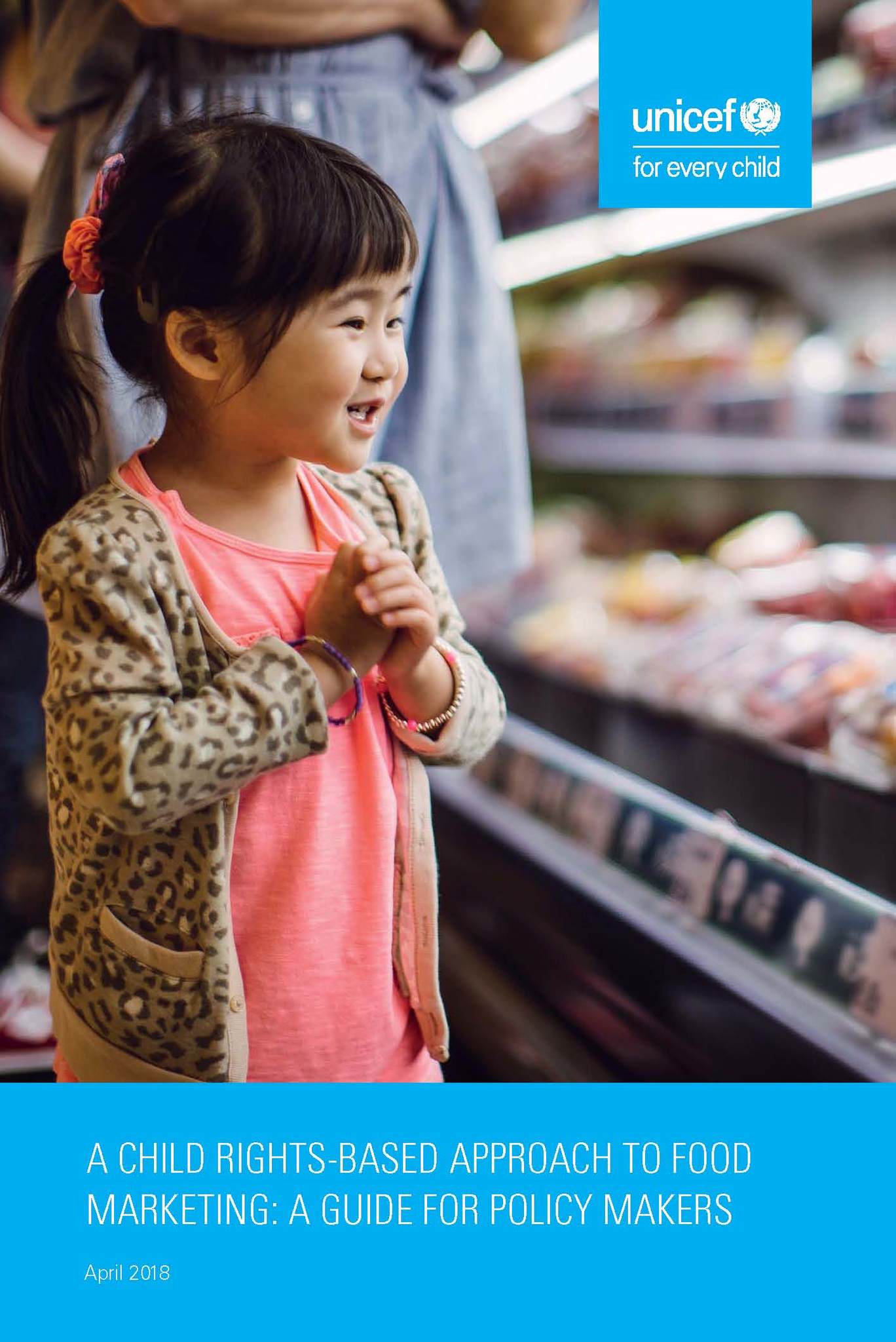A CHILD RIGHTS-BASED APPROACH TO FOOD MARKETING: A GUIDE FOR POLICY MAKERS
-
In May 2010, the 63rd World Health Assembly unanimously endorsed
the World Health Organization (WHO) set of recommendations on the
marketing of foods and non-alcoholic beverages to children.1 The WHO
Recommendations urge governments to adopt restrictions on marketing
to promote better nutrition and contribute to the global objective of
ending childhood obesity.Despite the accumulation of independent evidence that unhealthy food
marketing affects children’s preferences, purchase requests and diets,
progress towards implementing these recommendations has been slow.
Food Marketing and Children’s Rights offers a legal analysis that links the
WHO Recommendations with the Convention on the Rights of the Child
(CRC). After describing the extent of children’s exposure to unhealthy
food marketing, this report details which rights are impacted, and
outlines government duties and corporate responsibilities to protect and
respect these rights.This report is intended for policy makers. It aims to highlight a useful
framework for delivering on the government obligation and business
responsibility to protect children from unhealthy food marketing.In this analysis, the CRC provides the foundation for a child rightsbased
approach to ending childhood obesity and the prevention of
non-communicable diseases – with children identifi ed as rights holders
and governments as the corresponding duty bearers. Within this
framework, all policies and actions that have a potential impact on
children should be guided by internationally accepted human rights
principles and standards.

